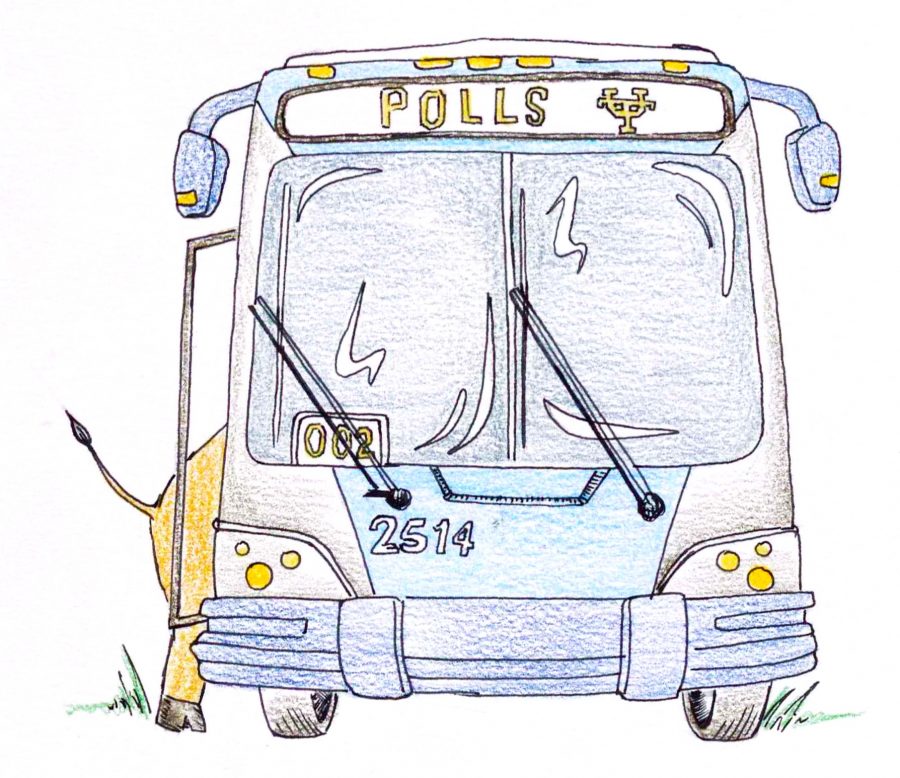Busing students to polling precincts engages new voters, exposes them to the issues and institutionalizes voting. School districts that elect to bus students to the polls should be allowed to. Students learn about the democratic process and become involved citizens by participating in it.
Educating students about government and civics predominantly occurs in class, but for students to have a real understanding of their government education has to happen outside of the classroom. Encouraging students to read candidate platforms, discern between the issues and ultimately vote is a surefire way to ensure the lessons from the classroom are translated to real life.
But Texas Attorney General Ken Paxton rejects that premise. He determined that busing students to the polls is illegal, but his priorities are severely misplaced. Paxton’s fight is with three distinct school districts — Lewisville, Brazosport and Holliday. Last month, he issued an official opinion that busing students to the polls would serve no educational purpose. This is incredibly misguided.
Busing students to the polls is our best shot at revitalizing voter turnout. The state of Texas ranks 47th in the nation for voter turnout. A large segment of those who decline to vote are young voters aged 18–29. They make up 31 percent of the electorate, on par with baby boomers. But boomers vote 71 percent of the time, compared to the 46 percent of the time millennial voters do. The disconnect has a myriad of causes, but part of it comes down to millennials’ digital prowess.
Millenials have proven themselves more likely to turn to informal channels for political participation — tweeting, protesting or texting — than traditional channels such as voting. Engaging students with polling precincts as soon as they can legally vote naturalizes the act of voting and is likely to increase their turnout.
A strong millennial presence forces elected officials to reintroduce issues such as affordable college and representative fiscal policy, and can tip the balance in hotly contested elections. The attorney general should be doing everything he can to empower students for the sake of representative democracy, rather than placing roadblocks to their participation.
But restricting voters is business as usual for Paxton. As a state senator he supported voter ID legislation, later ruled discriminatory by the judiciary, that disallowed the use of student ID for verification. His actions have consistently restricted students at the expense of a healthy democracy. He cannot be allowed to do the same with student-accessible voting plans. Legislators and politicians must understand that students are here to stay and that their voices will be heard. The nominal and fleeting political gains from impeding youth turnout are not worth the price our institutions pay.
Student mobilization is a powerful tool, and the ability to assemble and hold legislators accountable is something that students uniquely have the energy, platform and knowledge to do. Civic engagement groups such as Texas Educators Vote keep student issues at the forefront of their platform. Remaining vocal and engaged will curtail the influence of public officials like Ken Paxton and recapture it for students.
Hasan is a finance and international relations and global studies sophomore from Plano.





















